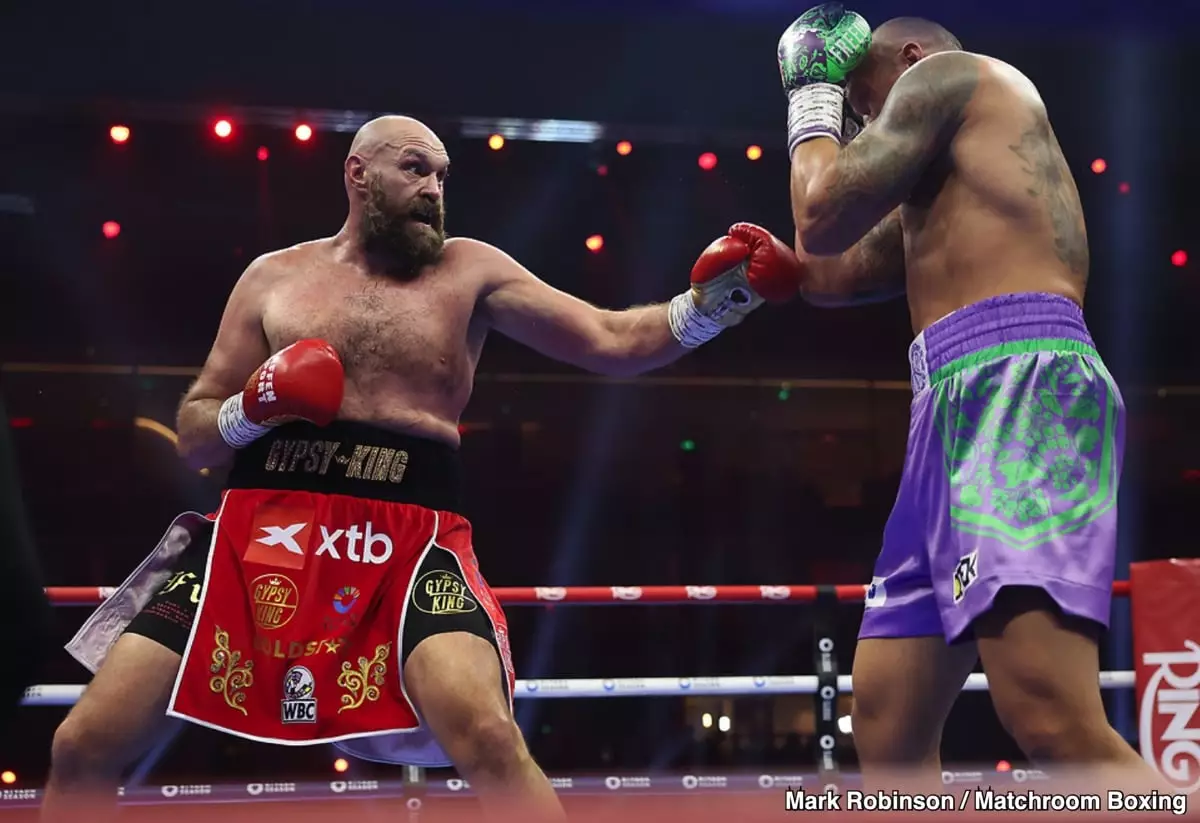Promoter Frank Warren has openly stated his position regarding Tyson Fury’s future in boxing following his recent defeat at the hands of unified heavyweight champion Oleksandr Usyk. Despite the loss, Warren emphasizes that he respects Fury’s autonomy in deciding whether to continue his boxing career or not. In the aftermath of the match, questions surrounding Fury’s career resurfaced, particularly concerning potential retirement. While Warren acknowledges the toll of the fight on Fury, he also suggests that the Gypsy King remains motivated to face Anthony Joshua, primarily due to the financial incentives associated with such a match.
The British boxing fervor surrounding a potential bout between Fury and Joshua continues unabated. Regardless of Fury’s recent performance, fans are eager for the clash of these two titans. However, the anticipation may not spill over into wider markets. Given their recent defeats, both fighters may need to revamp their appeal to non-British audiences, perhaps by offering a compelling undercard or more attractive pricing for pay-per-view access. The stakes have changed significantly. With Fury’s recent unanimous decision loss to Usyk (with a score of 116-112), his standing in the heavyweight division seems precarious, raising doubts about his ability to match up against Joshua.
Warren’s view on the judges’ decision showcases a promoter’s bias, as he contends that Fury deserved the victory against Usyk. However, the reality of the bout suggests a different narrative. The scorecards might have reflected a more balanced view, indicating that Fury’s chances were slim after being outperformed by Usyk for the majority of the fight. Analyzing the performance, it becomes clear that Fury was outworked; he struggled to land effective punches, confirming doubts about his readiness for a clash with Joshua.
The British public, however, seems willing to overlook these recent stumbles in hopes of a showdown. This reflects a cultural desire for the classic rivalry narrative, where historical records and pride might override current form and performance.
Reflecting on the careers of these fighters, Warren highlights that both Fury and Joshua have already made indelible marks in boxing history. They are financially secure, having amassed considerable wealth throughout their careers. Thus, the need to continue fighting becomes more a question of passion than necessity. Fury’s previous retirement—quickly followed by a return—illustrates his deep connection to the sport, suggesting that he may find it difficult to truly walk away, even amidst recent setbacks.
Ultimately, the future remains uncertain for Tyson Fury. While the allure of a showdown with Joshua is potent, both fighters must carefully contemplate their next steps. The question persists: is it about legacy, financial gain, or the pure love of the sport? As boxing evolves, Fury’s decision will resonate far beyond personal stakes, impacting the future of heavyweight boxing itself.


Leave a Reply